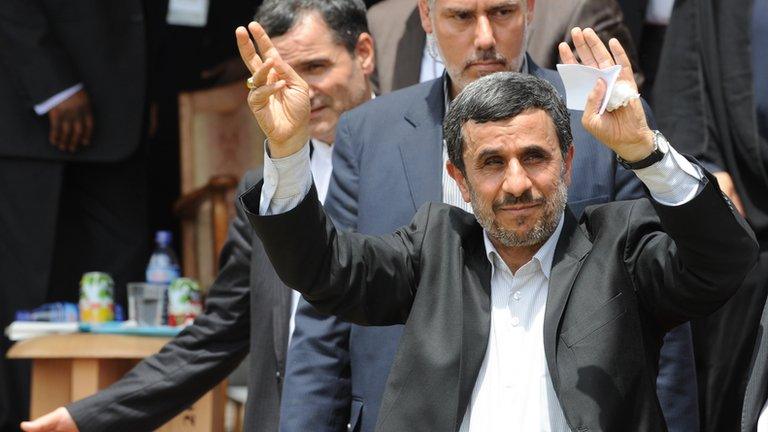Iran election: President Rouhani registers to run again
- Published
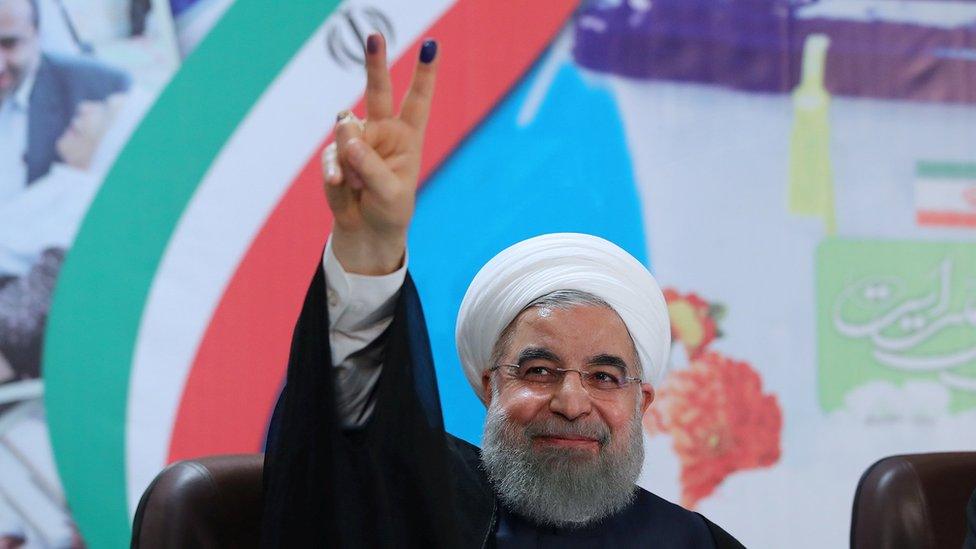
Rouhani gestured after registering, then said he stood for Iran, Islam, freedom and stability
Iran's President Hassan Rouhani has registered to run for office again in elections next month.
Judge and cleric Ebrahim Raisi, who also registered on Friday, is the leading candidate for hardliners.
A third contender is former president Mahmoud Ahmadinejad, who registered despite being advised by the supreme leader that running was "not in his interest and that of the country".
Candidates will be vetted and a final list of runners announced on 27 April.
Elections for the four-year presidential term take place on 19 May.
Mr Rouhani was elected by a landslide in 2013, on a platform of ending the country's diplomatic isolation and creating a freer society.
Two years later his government and six other countries reached a landmark deal, in which Iran agreed to curb its sensitive nuclear activities in return for the lifting of economic sanctions.
"Once again, I am here for Iran, for Islam, for freedom and for more stability in this country," he told reporters on Friday as he registered his candidacy.
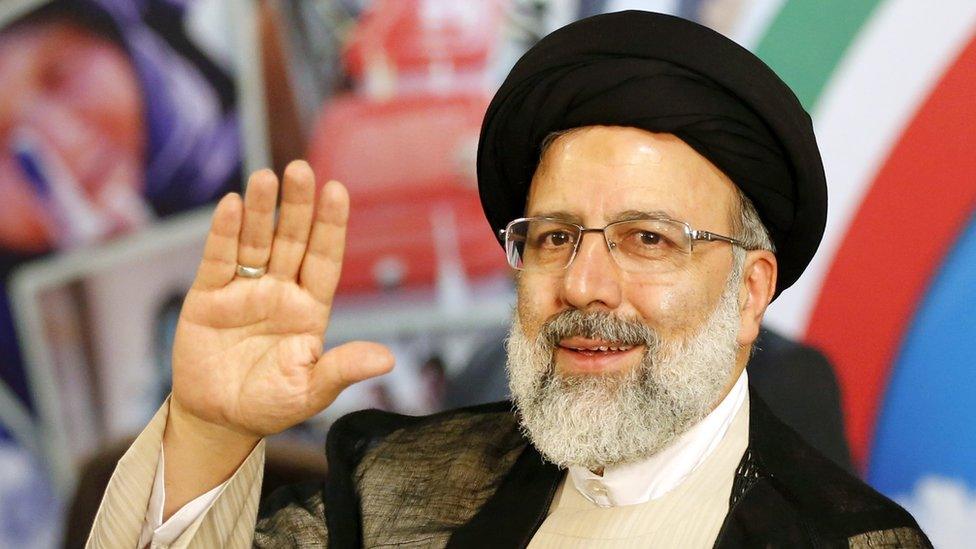
Ebrahim Raisi is a cleric and judge
Mr Raisi is what is known as a seyed, meaning he traces his genealogy back to the Prophet Mohammed.
Speaking to reporters at a news conference after he registered, he said: "I have come to be the candidate for all of Iran. I don't limit myself to a certain group, party or faction."
The former president, Mahmoud Ahmadinejad, who served two terms between 2005 and 2013, registered as a candidate on Tuesday. Associated Press journalists said election officials were "stunned" when he submitted his paperwork against the supreme leader's warning, but Mr Ahmadinejad said the words were "just advice".
Speaking afterwards, Mr Ahmadinejad said he was only helping his former vice-president, Hamid Baghaei, who registered alongside him.
More than 120 people, including six women, submitted their names on the first day of registration on Monday, local media reported.
Once the process ends on Saturday, the prospective candidates will be screened for their political and Islamic qualifications by the Guardian Council.
The body, made up partly of clerics, will announce a final list of vetted candidates on 27 April.
The disputed re-election of Mr Ahmadinejad in 2009 triggered the biggest protests in Iran since the Islamic Revolution in 1979.
Millions of people demanded a re-run, but the supreme leader insisted the result was valid and ordered a major crackdown on dissent that saw dozens of opposition supporters killed and thousands detained.
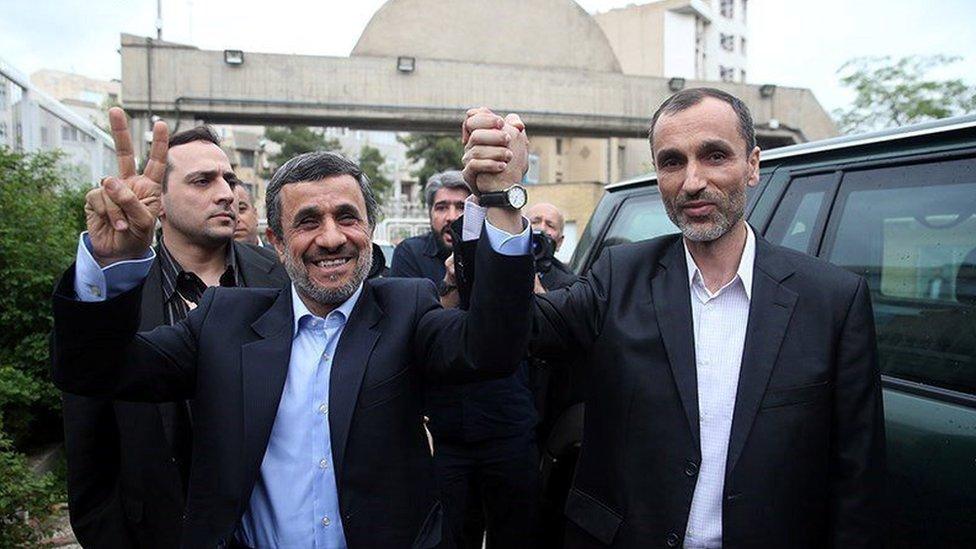
Mr Ahmadinejad said he was merely supporting the candidacy of Hamid Baghaei (right)
- Published12 April 2017
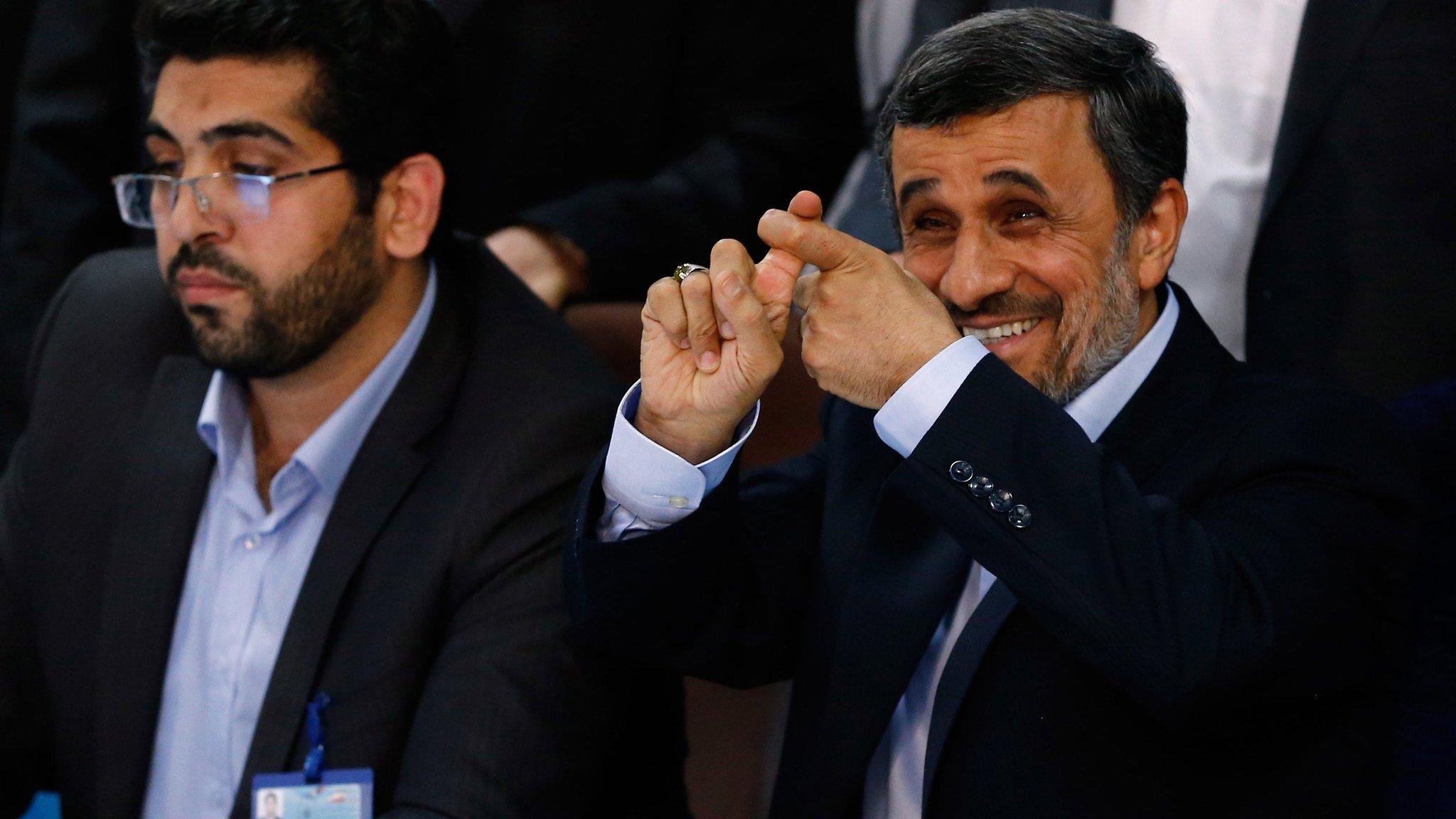
- Published4 June 2013
